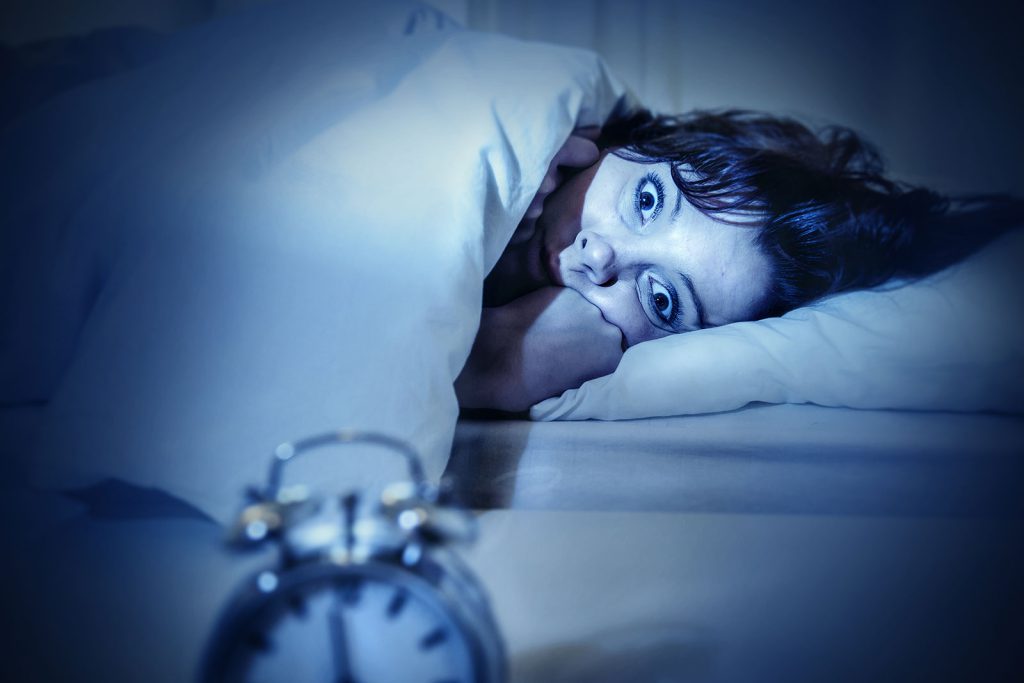On average, most adults need seven to nine hours of sleep at night. However, some people feel refreshed after only 6 hours of sleep, while others may need 10 hours to perform at their best.1 Sleep needs are unique to each individual and it is important to get the right amount.
Not getting enough sleep can greatly affect your performance, health, and quality of life. Having healthy sleep habits, also known as good sleep hygiene, is very important. Some people find it hard to get to sleep or to stay asleep at night. Try following the tips below from the National Sleep Foundation.1
- Stick to a sleep schedule of the same bedtime and wake up time, even on the weekends. This helps to regulate your body’s clock and could help you fall asleep and stay asleep for the night.
- Practice a relaxing bedtime ritual. A relaxing, routine activity right before bedtime conducted away from bright lights helps separate your sleep time from activities that can cause excitement, stress or anxiety, which can make it more difficult to fall asleep, get sound and deep sleep or remain asleep.
- If you have trouble sleeping, avoid naps, especially in the afternoon. Power napping may help you get through the day, but if you find that you can’t fall asleep at bedtime, eliminating even short catnaps may help.
- Exercise daily. Vigorous exercise is best, but even light exercise is better than no activity. Exercise at any time of day, but not at the expense of your sleep.
- Evaluate your room. Design your sleep environment to establish the conditions you need for sleep. Your bedroom should be cool – between 60 and 67 degrees. Your bedroom should also be free from any noise that can disturb your sleep. Finally, your bedroom should be free from any light. Check your room for noises or other distractions. This includes a bed partner’s sleep disruptions such as snoring. Consider using blackout curtains, eye shades, ear plugs, “white noise” machines, humidifiers, fans and other devices.
- Sleep on a comfortable mattress and pillows. Make sure your mattress is comfortable and supportive. The one you have been using for years may have exceeded its life expectancy – about 9 or 10 years for most good quality mattresses. Have comfortable pillows and make the room attractive and inviting for sleep, but also free of allergens that might affect you and objects that might cause you to slip or fall if you have to get up during the night.
- Use bright light to help manage your circadian rhythms. Avoid bright light in the evening and expose yourself to sunlight in the morning. This will keep your circadian rhythms in check.
- Avoid alcohol, cigarettes, and heavy meals in the evening. Alcohol, cigarettes and caffeine can disrupt sleep. Eating big or spicy meals can cause discomfort from indigestion that can make it hard to sleep. If you can, avoid eating large meals for two to three hours before bedtime. Try a light snack 45 minutes before bed if you’re still hungry.
- Wind down. Your body needs time to shift into sleep mode, so spend the last hour before bed doing a calming activity such as reading. For some people, using an electronic device such as a laptop can make it hard to fall asleep, because the particular type of light emanating from the screens of these devices is activating to the brain. If you have trouble sleeping, avoid electronics before bed or in the middle of the night.
- If you can’t sleep, go into another room and do something relaxing until you feel tired. It is best to take work materials, computers and televisions out of the sleeping environment. Use your bed only for sleep and sex to strengthen the association between bed and sleep. If you associate a particular activity or item with anxiety about sleeping, omit it from your bedtime routine.
- If you’re still having trouble sleeping, don’t hesitate to speak with your doctor or to find a sleep professional. You may also benefit from recording your sleep in a Sleep Diary to help you better evaluate common patterns or issues you may see with your sleep or sleeping habits.1

While daytime sleepiness is most often due to not getting adequate sleep, there are more than 80 different sleep disorders such insomnia, sleep apnea, and restless leg syndrome. Sleep apnea can particularly wreak havoc on your health and well-being. Certain medications and medical conditions, such as heart disease and depression, can also affect your sleep.2 The U.S. National Library of Medicine (2019) recommends that if you have any of the following symptoms, you should discuss them with your health care provider:
- You regularly take more than 30 minutes each night to fall asleep
- You regularly wake up several times each night and then have trouble falling back to sleep, or you wake up too early in the morning
- You often feel sleepy during the day, take frequent naps, or fall asleep at the wrong times during the day
- Your bed partner says that when you sleep, you snore loudly, snort, gasp, make choking sounds, or stop breathing for short periods
- You have creeping, tingling, or crawling feelings in your legs or arms that are relieved by moving or massaging them, especially in the evening and when trying to fall asleep
- Your bed partner notices that your legs or arms jerk often during sleep
- You have vivid, dreamlike experiences while falling asleep or dozing
- You have episodes of sudden muscle weakness when you are angry or fearful, or when you laugh
- You feel as though you cannot move when you first wake up
©2023HealthSpot References: (1) National Sleep Foundation. (2018). How to get a good nights sleep. https://www.sleepfoundation.org/articles/how-get-good-nights-sleep (2) U.S. National Library of Medicine: Medline Plus. Sleep Disorders. https://medlineplus.gov/sleepdisorders.html (February, 2019)

